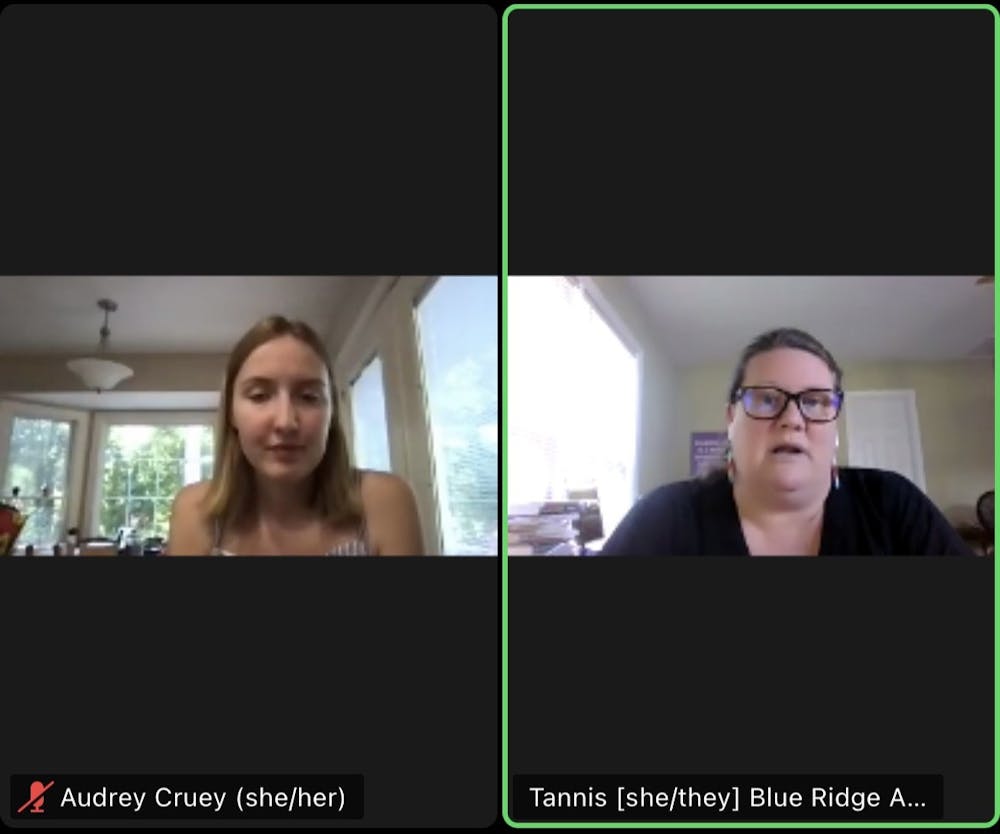Planned Parenthood Generation Action hosted a virtual event Monday for University community members to ask questions regarding the recent Supreme Court decision to overturn Roe v. Wade — the 1973 Supreme Court decision which legalized abortion across the nation — and the future of abortion access and activism.
Tannis Fuller, executive director of the Blue Ridge Abortion Fund, and Charlotte Gibson, president of Charlottesville National Organization for Women joined 10 community members and Audrey Cruey, PPGA advocacy and volunteer coordinator and third-year College student, to explain the history of Roe v. Wade and share their perspectives on the long fight for reproductive rights
BRAF seeks to provides funding, transportation and additional resources for individuals seeking abortion care. The Charlottesville chapter of NOW aims to change cultural attitudes regarding gender and support women’s equality through grassroots activism and fundraising.
In Virginia, abortion remains legal and Fuller emphasized that while the overturning of Roe v. Wade will impact many people, abortion funds have been aiding people for years to maintain accessibility. Currently, Governor Glenn Youngkin is aiming to pass a bill banning abortion after 15 weeks of pregnancy but has not done so yet.
“Roe has never been enough to guarantee access and so the work that abortion funds and allied activists have been doing for decades has been to make abortion accessible,” Fuller said.
Both Gibson and Fuller discussed the history of abortion access and ways that states and localities have attempted to restrict abortion rights even before Roe v. Wade was overturned.
Fuller explained that Virginia Targeted Regulation of Abortion Provider laws served to shut down many Virginia abortion clinics by creating strict regulations, including licensing requirements and requiring a certain room size and hallway width. In 2021, legislation was successfully passed to end the TRAP laws in Virginia.
Additionally, Gibson offered an analysis of the history of the Equal Rights Amendment, a proposed amendment to the constitution mandating equal rights for Americans regardless of sex.
While the ERA was ratified by Congress and two thirds of the states in 2020, the Trump Administration blocked the amendment’s certification. Virginia ratified the ERA in 2020 and Gibson said that — if certified and published to the constitution — the ERA would serve as an avenue to protect abortion by preventing discrimination in health care on the basis of sex.
Gibson also stated that the fight for reproductive freedom will “require some sustained effort over a long period of time” and intersects with several other prominent social justice causes such as the fight for racial and economic equality.
Gibson stated her concern regarding Judge Clarence Thomas’ concurring opinion that past Supreme Court decisions based on the right to privacy ought to be revisited. “Other decisions with the same legal basis as Roe are now threatened, so rights to contraception and same sex relationships and marriage are again vulnerable.” Gibson said.
Beyond discussions of the historical context of the recent decision, Fuller and Gibson both shared concerns that states may attempt to prevent women from crossing state lines to seek abortion care and will target abortion funds and providers.
Fuller said BRAF is currently working to assess the legal risks the organization may face as an abortion fund and believes that the organization will be sued at some point. ‘
“Are we also pretty committed to continuing to provide care and support? Yes,” Fuller said.
Both Gibson and Fuller emphasized the importance of viewing the pro-choice movement as a long fight. Specifically, Gibson stated her desire to see Roe codified into law to protect the reproductive rights of women across the country.
“We can bicker all we want about what's going on in individual states, but it should be something that applies to everyone across the country.” Gibson said.
Fuller stated the importance of finding organizations and work which allow for individual fulfillment and serve to create community connections. For her, connecting individuals across the community will help in “building a movement for change”.
As many react to the Supreme Court’s decision, presenters encouraged attendees to have hope and take action in their communities about issues they are passionate about. Both BRAF and Charlottesville NOW offer volunteer opportunities to the public.





